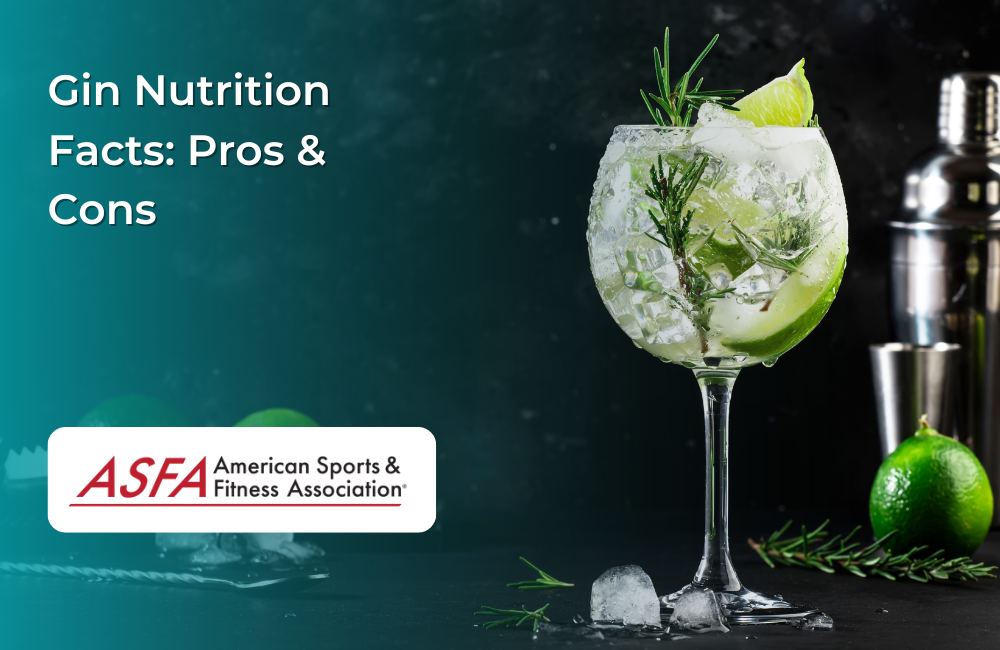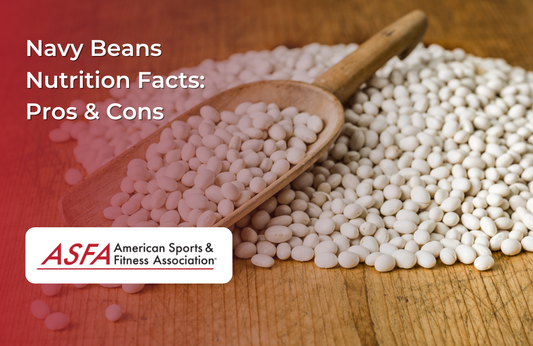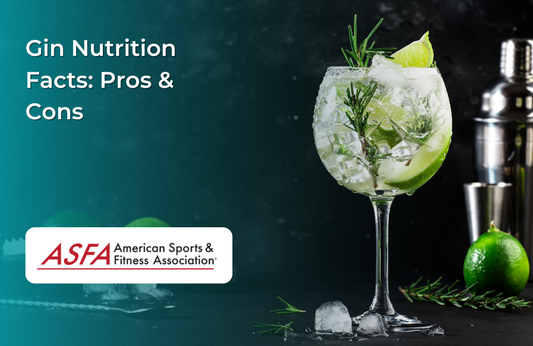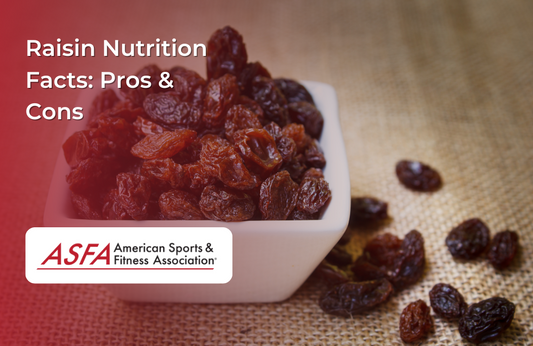Gin is a distilled alcoholic beverage made from juniper berries and other botanicals, giving it a distinct herbal flavor. It is often enjoyed in cocktails or mixed with tonic water. While gin is relatively low in calories and carbohydrates, its alcohol content and potential health effects should be considered.
Gin Nutrition Facts Pros Cons: Detailed Analysis Per 1.5-Ounce Serving
-
Calories: 97
-
Carbohydrates: 0g
-
Sugar: 0g
-
Fat: 0g
-
Protein: 0g
-
Alcohol Content: 35-50% (varies by brand)
A typical serving of gin and tonic contains around 120-150 calories, depending on the type of tonic water used. This is relatively low compared to other alcoholic beverages, making it a popular choice for those mindful of how many calories they consume. However, it's important to consider the impact of alcohol intake on overall health, as moderation is key to balancing potential benefits and risks.
What is Gin?
Gin is a type of distilled alcoholic drink that boasts a rich history and a distinctive flavor profile. Made primarily from juniper berries, gin is a clear, colorless spirit that is often infused with a variety of botanicals such as coriander, citrus peel, and other aromatic herbs and spices. This unique combination of ingredients gives gin its characteristic taste, making it a popular choice for a wide range of cocktails, including the classic gin and tonic. Whether enjoyed as a standalone spirit or as a base for creative concoctions, gin offers a versatile and refreshing option for those who appreciate the nuanced flavors of botanically-infused alcoholic drinks.
Gin Nutrition Facts
Calories and Macronutrients
Gin is a low-calorie alcoholic beverage, with approximately 97 calories per 1.5-ounce serving. It contains zero carbohydrates, fat, and protein, making it a popular choice for those watching their diet. However, it’s essential to note that mixers and other ingredients can significantly increase the calorie count of a gin-based drink. For instance, tonic water or sugary syrups can add extra calories and carbohydrates, potentially negating the low-calorie advantage of gin. To keep your drink light, consider mixing gin with soda water, fresh lime, or other low-calorie options.
Pros of Gin
Low in Calories and Carbohydrates
-
Contains no sugar or carbs, making it a suitable choice for low-carb and keto diets
-
Lower in calories than many sweetened alcoholic beverages. Compared to other alcoholic beverages like beer and wine, gin is significantly lower in calories and carbs.
Contains Natural Botanicals and Juniper Berries
-
Made with juniper berries, which contain antioxidants and anti-inflammatory compounds
-
May provide small amounts of plant-based compounds that support digestion
Cardiovascular Health and Antioxidants
Gin has been linked to several potential health benefits, including reducing the risk of heart disease and stroke. The antioxidants present in juniper berries, the primary ingredient in gin, may help to improve cardiovascular health by reducing inflammation and improving blood flow. Additionally, moderate gin consumption has been associated with lower levels of triglycerides and blood pressure. While these health benefits are promising, it’s crucial to remember that they are most effective when gin is consumed in moderation. Excessive alcohol consumption can negate these benefits and lead to serious health issues.
May Support Moderation Compared to Beer or Wine
Strong flavor may encourage slower consumption, reducing overall intake. Moderate alcohol consumption, including drinking gin, has been associated with potential benefits such as improved bone density, better heart health, and reduced stress levels. However, it is important to be aware of the negative health implications of drinking alcohol, particularly when consumed excessively, as it can reduce immune system function and increase the risks of diseases like pneumonia.
Often mixed with calorie-free mixers like soda water or tonic
No Added Sugars or Artificial Ingredients
-
Unlike some flavored spirits, gin is typically free from added sweeteners
-
Allows for cleaner, lower-calorie cocktails when paired with healthy mixers
Cons of Gin
High Alcohol Content
-
Can contribute to dehydration and impaired cognitive function if consumed excessively
-
Excessive alcohol intake increases the risk of liver disease and high blood pressure
May Lead to Poor Sleep Quality with Excessive Alcohol Consumption
-
Alcohol disrupts REM sleep, which can impact recovery and overall restfulness
-
Drinking gin too close to bedtime may reduce sleep efficiency
Often Mixed with Sugary Drinks
-
Popular mixers like tonic water, syrups, or fruit juices can add unnecessary sugar and calories
-
Choosing soda water or fresh citrus helps maintain a lower-calorie drink
Not a Significant Source of Nutrients
-
Provides no vitamins, minerals, or essential nutrients
-
Should not be considered a health-promoting beverage despite potential plant-based compounds
Comparison to Other Alcoholic Drinks
When comparing gin to other alcoholic drinks, several factors come into play, including calorie content, carbohydrate levels, and potential health benefits. Gin stands out as a lower-calorie option, with approximately 97 calories per 1.5-ounce serving, compared to beer and wine, which typically contain more calories and carbohydrates. For instance, a standard beer can have around 150 calories and 13 grams of carbs, while a glass of red wine contains about 125 calories and 4 grams of carbs.
In terms of health benefits, moderate red wine consumption is often touted for its polyphenol content, which can support heart health. However, gin also offers unique advantages due to its botanical ingredients, particularly juniper berries, which are rich in antioxidants. These antioxidants can help reduce inflammation and improve cardiovascular health.
Ultimately, the best alcoholic drink for you depends on your dietary preferences and health goals. If you’re looking for a low-calorie, carb-free option, gin is an excellent choice. However, if you prefer the potential heart health benefits of polyphenols, moderate red wine consumption might be more suitable. As always, the key is to enjoy these beverages in moderation to maximize their benefits while minimizing potential risks.
Vitamins and Minerals
While gin is not a significant source of vitamins and minerals, it does contain trace amounts of certain nutrients, thanks to its primary ingredient, juniper berries. Juniper berries are known for their vitamin C content and antioxidants, which may offer some health benefits. However, it’s important to note that the distillation process used to make gin can reduce the levels of these nutrients. Therefore, while drinking gin might provide minimal amounts of these beneficial compounds, it should not be relied upon as a primary source of vitamins and minerals. Instead, enjoy gin for its unique flavor and potential digestive health benefits, but continue to get your essential nutrients from a balanced diet rich in whole foods.
Drinking Gin Responsibly
As with any alcoholic drink, responsible consumption of gin is crucial to maintaining good health. Excessive alcohol consumption can lead to serious health issues, including liver damage, heart disease, and an increased risk of certain cancers. Additionally, drinking alcohol is associated with reduced immune system function and increased risks of diseases like pneumonia. To enjoy gin in a healthy way, consider the following tips:
-
Drink in moderation: Limit your gin intake to 1-2 drinks per day for men and 1 drink per day for women, as recommended by health guidelines.
-
Avoid binge drinking: Consuming large amounts of gin in a short period can significantly increase your risk of health problems. Stick to moderate drinking to enjoy the health benefits of gin without the risks.
-
Eat before drinking: Having a meal or snack before drinking gin can help slow the absorption of alcohol into your bloodstream, reducing its impact on your body.
-
Stay hydrated: Drinking plenty of water alongside gin can help prevent dehydration, a common side effect of alcohol consumption.
By following these guidelines, you can enjoy gin responsibly and minimize the potential negative effects of alcohol consumption.
Storage and Consumption
To ensure you get the best flavor and aroma from your gin, proper storage and consumption practices are essential. Here are some tips to help you enjoy your gin at its finest:
-
Store gin in a cool, dark place: Keep your gin away from direct sunlight and heat sources, as these can cause the spirit to degrade over time.
-
Keep gin in the refrigerator: Chilling your gin can help preserve its flavor and aroma, making for a more enjoyable drinking experience.
-
Consume gin within a year: Once opened, gin can last for up to a year if stored properly. However, for optimal flavor and aroma, it’s best to consume it within 6-9 months.
-
Use a clean glass: Always serve gin in a clean glass to prevent contamination and ensure the purest taste.
By following these storage and consumption tips, you can savor the full experience of drinking gin, whether you’re enjoying it neat, on the rocks, or as part of a delicious cocktail.
Conclusion
Gin is a low-calorie, carb-free alcoholic beverage that can fit into a balanced diet when consumed in moderation. While it contains natural botanicals with some antioxidant properties, its high alcohol content, potential for dehydration, and impact on sleep should be considered. Choosing low-calorie mixers and drinking in moderation ensures a better balance between enjoyment and health.
FAQs
Is gin healthier than beer or wine?
Gin has fewer calories and no carbohydrates, making it a lower-calorie option compared to beer or wine.
However, when it comes to heart health, studies suggest that moderate red wine consumption may offer benefits due to its polyphenol content, which gin lacks.
Can gin be part of a keto diet?
Yes, gin contains zero carbohydrates and can be enjoyed on a keto diet when mixed with low-carb ingredients.
Does gin have any health benefits?
Juniper berries and botanicals in gin contain antioxidants, but the health benefits are minimal compared to whole foods.
How much gin is safe to drink?
Moderate consumption is generally considered one drink per day for women and up to two drinks per day for men, according to health guidelines.
What is the best low-calorie way to drink gin?
Mixing gin with soda water, fresh lime, or herbal infusions instead of tonic or sugary mixers helps keep it low in calories.





